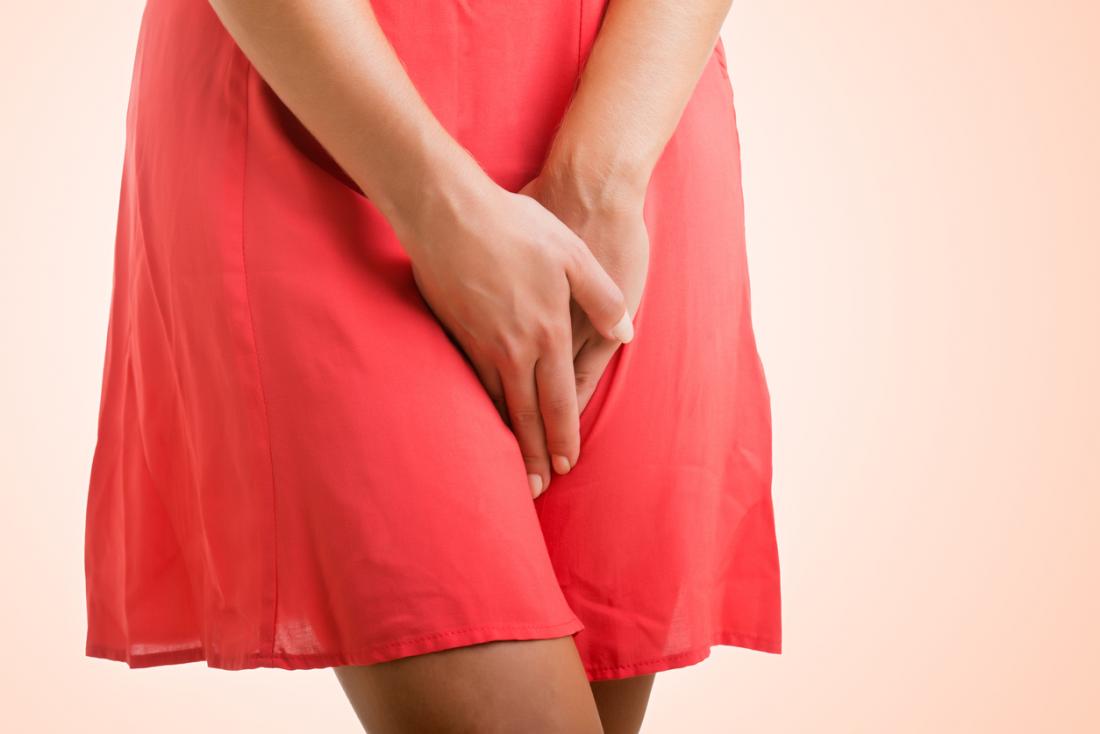Adopt hygiene and stay away from vaginal disorders! Common problems faced by women include reddening, inflammation, itching and wetness around the vaginal area. You can overcome these problems with basic precautions and natural care. Read HelloDox tips and remains aware about natural cares for vaginal disorders.
What Is a Yeast Infection?
A vaginal yeast infection is an infection resulting from the overgrowth of yeast — a type of fungus — of the genus Candida.
Candida normally live on the skin and inside the body (mouth, throat, gut, and vagina) without causing health problems. There are over 150 Candida species, about 15 of which are known to cause infections if they multiply out of control.
Also called candidal vaginitis, vaginal candidiasis, or vulvovaginal candidiasis, yeast infections are most commonly caused by Candida albicans. (1)
They are also commonly caused by several other Candida species, including C. glabrata, C. parapsilosis, C. tropicalis, and C. krusei.
Up to 75 percent of women will get a vaginal yeast infection at least once in their lives, and 40 to 50 percent of women will experience more than one infection, according to research published in The Lancet.
What's more, 5 to 8 percent of women experience recurrent, or chronic yeast infections, and come down with four or more yeast infections in a single year.
Additionally, men can get yeast infections in their genitals, mouths, and other areas.
With treatment, most yeast infections take from one to seven days to clear up. If symptoms persist for more than a week, check with your doctor to rule out a more serious condition.
A very common problem that affects women and teenage girls who have reached puberty can be called as vaginal odour. The vagina, uterus, or cervix can produce a clear or whitish fluid called as vaginal discharge. The consistency and colour will depend on whether you are on your monthly period. The symptoms are itching and vaginal pain, fishy smell, pain during intercourse, thick white discharge and excessive white discharge.
You may get vaginal discharge due to bacterial infections, sexually transmitted infections like Chlamydia, gonorrhoea and so on, vaginal yeast infection, if you leave tampon down there, using harmful chemicals in the form of soaps to clean the vaginal area and so on. So, just follow these smart tricks and eliminate that foul smell coming from down there.
You can opt for baking soda: It can help you to bring your pH levels back to normal and this can tackle fungi and bacteria and can help you to deal with that foul smell. So, you can add baking soda to your water while bathing or just add some baking soda to a glass of water and consume it. you will surely see some positive results.
You can opt for a pineapple: The odour of your vaginal secretions can be improved due to pineapple’s strong smell. So, just eat pineapple slices or drink pineapple juice and relax, the foul smell will vanish!
You can opt for garlic: According to studies, garlic carries antibacterial properties which can help you to tackle bacteria. So, just consume it and you will feel good.
You can opt or gooseberry (amla): It is abundant in vitamin C and can help you to strengthen your immunity and eliminate bacteria. You can drink amla juice or eat amla slices to get rid of that fishy smell. Do try these fool-proof hacks and smell good.
One of the common complaints associated with sexual intercourse, is vaginal bleeding. This bleeding can occur during the course of intimacy or after it. Post intercourse bleeding is also termed as post-coitus bleeding. This is known as post costal bleeding. Doctor should be consulted immediately as it may be a sign of hidden cervical cancer.
Reasons behind vaginal bleeding
In most cases, the bleeding is risk free. It could be due to extreme friction, causing damage to superficial blood vessels in the cervix. It is important to use adequate lubrication; otherwise the consequences could be annoyingly painful.
If your period dates are nearby, the source of the blood could be from your uterus.Benign growths, cysts, polyps on the cervix can cause bleeding. They are small fragile growths that rupture easily.There can also be bleeding due to inflammations that occur as a reaction to a condom or a diaphragm.
When can vaginal bleeding be difficult?
Vaginal bleeding after sex can often be a warning sign of ectopic pregnancy. Ectopic pregnancy is when implantation of an embryo takes place outside the uterus, commonly inside the fallopian tubes.
Bleeding every time after intercourse is also a common symptom of endometriosis. It occurs when the inner lining of the uterus, called the endometrial tissue, appears outside it. Endometrial tissue can attach itself to other surrounding organs in the pelvic region, generally, the abdomen, causing searing pain. It is also a major cause of infertility.
Another cause of vaginal bleeding is atrophic vaginitis, a health condition mostly affecting older women, especially those who have reached menopausal age. This is due to the massive decline in the levels of estrogen that causes vaginal dryness and irritation.
Sexually transmitted diseases could be a serious cause of vaginal bleeding. It is generally accompanied by several other symptoms such as vaginal odour, discharge, pelvic pain, inflammations. It should receive immediate medical attention.
Vaginal bleeding could be a sign of cancer. It could be vaginal, ovarian, uterine or cervical cancer. It requires medical attention without any delay.
Most of the time, the reasons for post coitus bleeding is harmless. However, if it persists, you must pay a visit to your gynaecologist as soon as possible and get a thorough evaluation done. This could save the condition from worsening and also diagnose any other underlying medical condition at an early, curable stage.
Scientists have developed a vaginal implant that can protect women from HIV infection by decreasing the number of cells that the virus can target in their genital tract.
Unlike conventional methods of HIV prevention, such as condoms or anti-HIV drugs, the implant takes advantage of some people's natural immunity to the virus, according to researchers at the University of Waterloo in Canada.
The implant, described in the Journal of Controlled Release, is composed of a hollow tube and two pliable arms to hold it in place.
It contains hydroxychloroquine (HCQ) which is disseminated slowly through the porous material of the tube and absorbed by the walls of the vaginal tract.
"We know that some drugs taken orally never make it to the vaginal tract, so this implant could provide a more reliable way to encourage T cells not to respond to infection and therefore more reliably and cheaply prevent transmission," said Emmanuel Ho, a professor at the University of Waterloo.
"What we do not know yet is if this can be a stand-alone option for preventing HIV transmission or if it might be best used in conjunction with other prevention strategies," said Ho.
HIV infects the body by corrupting T cells that are mobilised by the immune system when the virus enters a person's body.
When the T cells stay resting and do not attempt to fight the virus they are not infected and the HIV virus is not transmitted between people. When the T cells stay resting, it is referred to as being immune quiescent.
The implants were tested in an animal model and the team observed a significant reduction in T cell activation, meaning that the vaginal tract was demonstrating an immune quiescent state.
The new implant was inspired by previous research involving sex workers in Kenya.
In Kenya, Ho and research partner Keith Fowke of the University of Manitoba, observed that many of these women who had sex with HIV positive clients but did not contract the virus.
They later found the women possessed T cells that were naturally immune quiescent.
"Observing this, we asked ourselves if it was possible to pharmacologically induce immune quiescence with medication that was better assured of reaching the point of infection," said Ho.
"By delivering the medication exactly where it is needed, we hoped to increase the chances of inducing immune quiescence," he said.
Vaginismus is a condition where vaginal contractions and squeezes may be caused due to pain during intercourse or due to the insertion of objects like tampons. This mildly uncomfortable condition is also characterised by spams and other symptoms like the feeling of coming up against a thick wall which can cause pain. This may be due to a variety of reasons starting from infections to anxiety. To a large extent, the treatment of this condition depends on the cause. Following are the various ways in which this condition can be treated.
Sex Therapy: A sexologist or an expert who specialises in psychosexual medicine can help in treating this condition by conducting a series of counselling sessions where psychoanalysis will help in understanding and unravelling the cause of the condition. This may be followed by CBT or cognitive behavioural therapy. This kind of therapy usually helps in reprogramming the brain after the root cause for the condition is known.
Exercises: During sex therapy, the doctor may also teach you various kinds of exercises and vaginal trainers that can help you in strengthening the pelvic floor and relaxing the muscles as well. These vaginal trainers are especially helpful in equipping you suitably so that you can relax your vagina and let the insertion happen. Vaginal trainers consist of four smooth balls of plastic which can be inserted with the help of lubricants to help in stretching the vagina.
Relaxation: Getting yourself to relax is also a matter of exploration and touching, which can help you understand the kind of touch and the exact areas that make you tense. During sex therapy, you may be taught a technique known as progressive relaxation. This mode includes tensing and relaxing your muscles as you explore by inserting a finger.
Sensate Focus: This is a part of sex therapy and involves your partner. In this method, you will be asked to abstain from sex and touch each other without going to the genitals and other private parts. This will help in better arousal and sexual stimulation.
Surgery: The last option for treating a very severe form of this condition is to put the patient through surgery which will seek to remove endometriosis, as these growths in the womb's lining can cause a lot of pain during intercourse. Also, vaginal enlargement surgery can be carried out with the help of episiotomy.
This kind of procedure usually helps in fixing the scar tissue that may have been left from a previous procedure, which can restrict or block the vaginal path. Getting help at the right time for this condition is of great importance so as to have a normal sex life.













